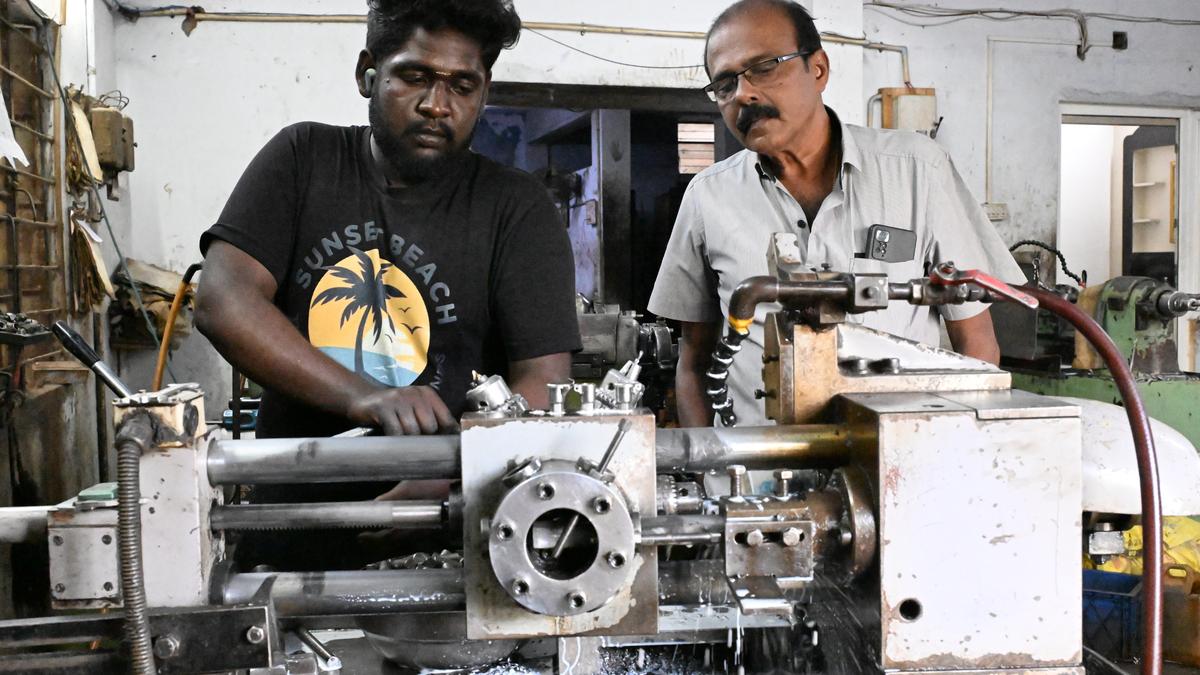
Coimbatore’s automotive firms view EV transition with trepidation, but see an opportunity as well Premium
The Hindu
Antony Raj, a MSME owner in Coimbatore, remains optimistic about his business despite the rise of electric vehicles.
Antony Raj employs eight workers and runs a computer numerical control machine and lathes in Coimbatore in Tamil Nadu. He receives a stable monthly income supplying components that go into grease pumps in fossil fuel based automobiles. For almost 24 years now, he has been making 48 of the 112 components that go into these pumps.
“The demand for these components will continue even in electric vehicles. I do not see any impact in business with increasing sale of electric vehicles and I have no plans to upgrade my unit to make the entire pumps,” he says.
Antony Raj is among the thousands of Micro, Small or Medium-scale Enterprise (MSME) owners who form part of the supply chain in the automobile sector in industrial clusters such as Coimbatore.
A 2022 report from the World Resources Institute, India wagers that the transition to electric vehicles from internal combustion engines, or ICE vehicles, as fossil fuel-based automobiles are increasingly being referred to in popular parlance, could detrimentally impact the MSMEs that supply to the auto sector.
The report says 35,000 to 45,000 MSMEs in India employ almost 15 million people who manufacture 2,000 components for the ICE vehicle quoting a 2013 report by KPMG. WRI goes on to say that MSMEs have low access to formal sources of capital to plan their business beyond short-term deliverables and hence cannot invest in new technologies or upskilling and reskilling its workers.
An ICE vehicle has almost 2,000 moving parts whereas EVs have only 20. So, the share of components suppliers in the value chain of a car can reduce from 50%-55% in ICE vehicles to 35%-40% in EVs, WRI India, says in its report.













